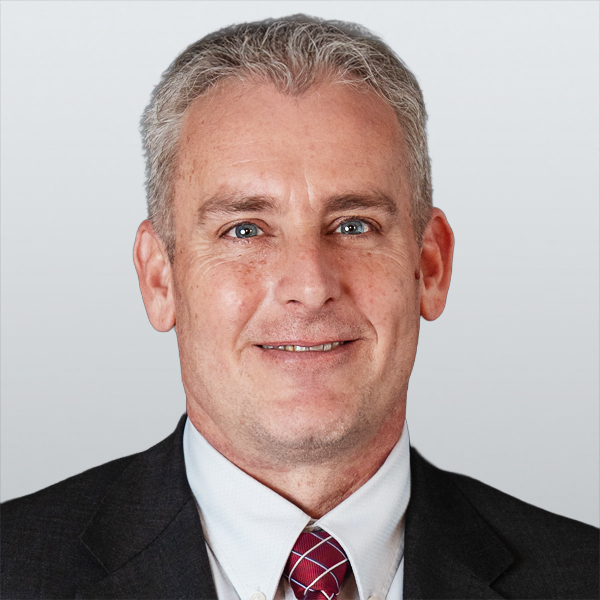California Gov. Gavin Newsom signed 27 bills between Sept. 14 and Sept. 16, and he sent back six bills without his signature for a variety of reasons.
He signed Senate Bill 1407, introduced by Republican Sen. Janet Nguyen, which authorizes the creation of a monument on the grounds of the state Capitol dedicated to the victims and survivors of communism and instructs funding for the monument to come from private sources.
“Too many have perished and suffered at the hands of oppressive governments,” Newsom said in a statement emailed to The Epoch Times on Sept. 14. “All across the world, the United States stands as a beacon of democracy, freedom, and an opportunity for a better future. We will continue to welcome those fleeing brutal regimes and seeking their California and American dream.”
The bill’s author said recognizing those affected by the communist regimes in China and other nations is a step in the right direction.
“California is home to a large diaspora of people who escaped from communist regimes in Asia, Europe and South America,” Nguyen said in legislative analyses. “To place a monument dedicated to the victims and survivors of political terror and violence would show them and the world that we hear their stories.”
She said the issue is personal to her.
“As a victim and survivor of communism, my family fled our home country of Vietnam following the fall of Saigon,” Nguyen said. “Before our escape, my family faced the same terror and brutality that you hear about in the stories shared by other survivors from Vietnam, Russia, and Eastern Europe, Cuba, Cambodia, and other parts of the world.”
A nonprofit organization, yet to be determined, would be responsible for funding, planning, constructing, and maintaining the monument—in consultation with the state’s Department of General Services.
Before the monument is constructed, the Legislature’s Joint Rules Committee will review the plan and issue a final approval. The committee and the state’s Department of Finance will decide whether sufficient funding was supplied by the nonprofit before construction begins.
While funding will come from private sources, the Assembly Appropriations Committee calculated in its August analysis one-time costs of about $200,000 to the general services department to oversee planning and construction. Such costs also include environmental reviews and permitting processes.
Also, ongoing “minor costs” are expected from landscaping and debris removal services, according to the appropriations committee.
The bill does not require the nonprofit that will be constructing the monument to reimburse the state for the expenditures.
Receiving bipartisan support in the Assembly and the Senate, SB 1407 received only one no vote on its path through the Legislature—from Assemblyman Alex Lee on Aug. 28.
Another bill signed by the governor, Assembly Bill 2867—introduced by Assemblyman Jesse Gabriel—will facilitate the recovery of art stolen by the Nazis during the Holocaust.
Gabriel introduced the bill after the Ninth U.S. Circuit Court of Appeals issued a decision allowing a museum in Spain to keep artwork that was stolen from the Cassirer family.
“For survivors of the Holocaust and their families, the fight to take back ownership of art and other personal items stolen by the Nazis continues to traumatize those who have already gone through the unimaginable,” Newsom said in a Sept. 16 statement. “It is both a moral and legal imperative that these valuable and sentimental pieces be returned to their rightful owners, and I am proud to strengthen California’s laws to help secure justice for families.”
Assembly Bill 2743, authored by Assemblywoman Blanca Pacheco and approved by the governor, triples the amount of insurance coverage required for operators of personal vehicle sharing programs.
With the signing of Assembly Bill 3130, authored by Assemblywoman Sharon Quirk-Silva, county supervisors are required to disclose family relationships with officers or employees of nonprofits before the board of supervisors authorizes grants to the organizations.
Assembly Bill 2864, introduced by Assemblyman Eduardo Garcia and signed by Newsom, allows a three-year extension for medical licenses for physicians and dentists from Mexico. Previous law allowed 30 physicians and 30 dentists from Mexico to apply for three-year licenses.
The author said California needs more Latinos practicing medicine to serve the needs of the growing community and highlighted the state’s physician shortage, which he said has increased since 2000.
“Perhaps the most urgent matter confronting the health care of our state and nation is ensuring that we have an adequate supply of doctors available to serve the diversity of our state and nation’s population,” Garcia said in legislative analyses. “AB 2864 ensures that the doctors that are already working in clinics and are serving patients are able to remain in their positions.”
Also affecting licensed medical professionals from Mexico seeking to practice in California, Garcia’s Assembly Bill 2860 makes it easier for doctors and dentists to qualify for licensure in the Golden State by repealing existing laws that require prospective applicants to be enrolled in English as a second language class and complete six-month externships, among other things. The bill was signed by Newsom.
Assembly Bill 2715, authored by Assemblywoman Tasha Boerner and signed by Newsom, expands exemptions to the Ralph M. Brown Act—which requires that meetings of legislative bodies be open to the public—to allow closed session meetings with law enforcement and security personnel related to critical infrastructure or cybersecurity.
Bills rejected by the governor include two that were deemed too costly for the state given the budget deficit—which totaled about $73 billion for the fiscal year, according to the nonpartisan Legislative Analyst’s Office.
Boerner’s Assembly Bill 2564 would have increased the fund to support postponed property taxes for seniors and disabled citizens from $7.5 million to $15 million.
“While I appreciate the author’s intent to provide additional funding for this important program ... additional allocations, if necessary, should be considered in the annual budget process,” Newsom wrote in his veto letter. “It is important to remain disciplined when considering bills with significant fiscal implications that are not included in the budget, such as this measure.”
Assembly Bill 2704, introduced by Assemblyman Rick Chavez Zbur and vetoed by the governor, would have waived criminal background check fees for individuals applying for in-home supportive services positions.
Quirk-Silva’s Assembly Bill 1470 which sought to create new standards for Medi-Cal documentation, was also vetoed.
In his letter to the Assembly, Newsom said he rejected the proposal because it duplicated similar efforts enacted in January.
A proponent and sponsor of the bill said it was needed to address challenges and improve efficiency in the health care industry.
“The governor’s decision to veto AB 1470 is disappointing, especially given the pressing need for standardized and streamlined documentation in the behavioral health field,” Christine Stoner-Mertz, CEO of the California Alliance of Child and Family Services—a nonprofit headquartered in Sacramento—said in a Sept. 16 statement. “This bill was a necessary step towards aligning our efforts with the realities faced by providers daily.”
More than 800 bills still await the governor’s signature or veto, with all decisions due by the Sept. 30 deadline.














